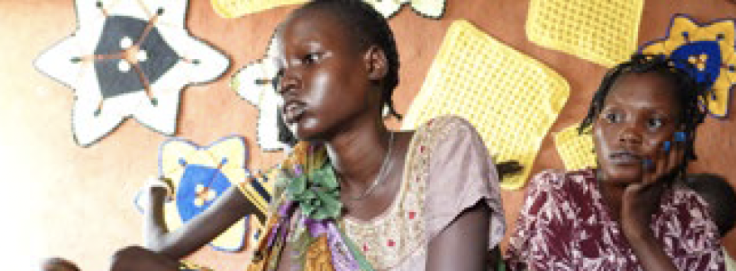
Search
A Day in the Life: Nyakume’s story in South Sudan*

Nyakume, a 22-year-old woman living in the Mangateen internally displaced persons camp in South Sudan, exemplifies resilience amid severe hardships.
Her family, displaced by tribal conflicts and instability following South Sudan’s 2013 conflict, resides in a cramped shelter shared with 13 relatives, including a disabled cousin.
Their living conditions are dire, with limited access to food, clean water, electricity, and sanitation. Nyakume’s father, once a government employee, now works as a security guard to provide for the family, but economic challenges and high inflation compound their struggles. The children have been forced to drop out of school due to unaffordable tuition, deepening the cycle of poverty.
Daily life in the camp is arduous. To fetch water, Nyakume and her sisters undertake a one-hour long round trip to a communal well, where they often have to queue. Their cooking is done using firewood or charcoal, and the family lacks basic assets apart from two mobile phones.
Food insecurity has led to severe nutritional deprivation within the household. Despite these challenges, Nyakume dreams of pursuing higher education to support her family and help them achieve stability, holding onto hope for a peaceful future in South Sudan.
Her story is a stark reminder of the ongoing hardships faced by displaced families and the need for targeted support.
According to the global Multidimensional Poverty Index (MPI), Nyakume’s household is categorised as poor, with a deprivation score of 66.7%—twice the threshold for poverty.
While the MPI does not currently account for the specific experiences of internally displaced persons like Nyakume, their difficult situation underscores the urgency of better data collection to address multidimensional poverty and develop effective solutions for vulnerable populations.

Note: Indicators in white refer to a nondeprivation.
* OPHI and UNDP (2024). Global Multidimensional Poverty Index 2024: Poverty amid conflict.
This article was published in Dimensions 17















